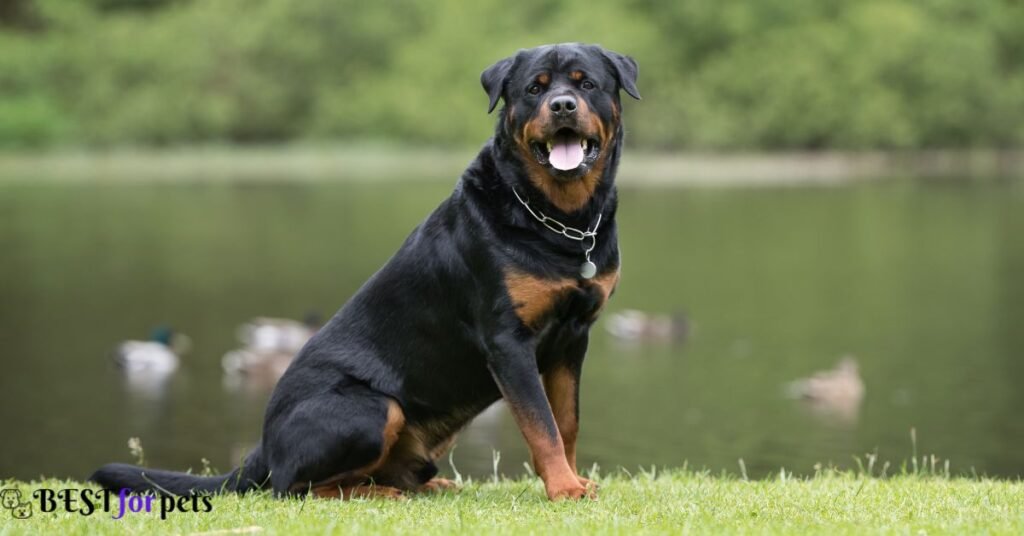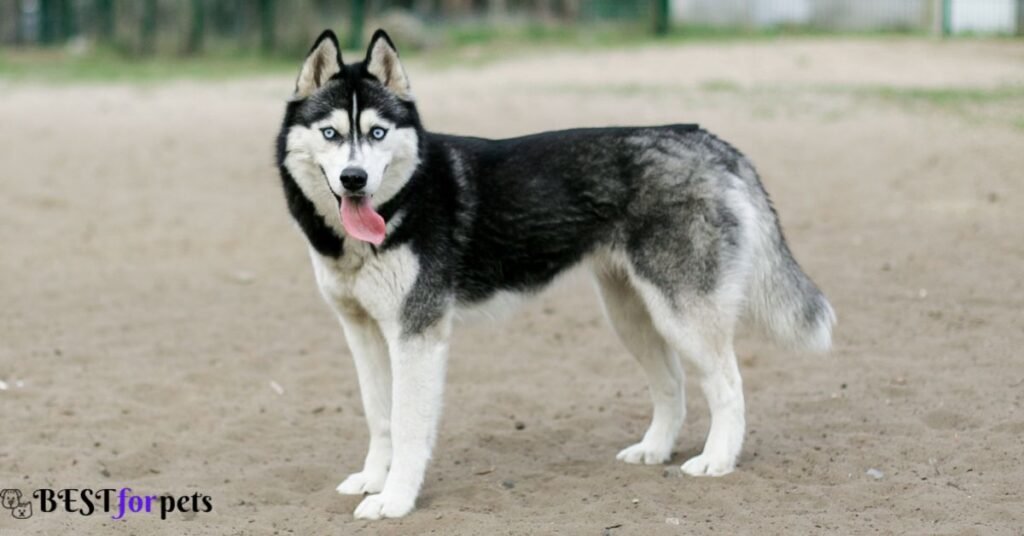Siberian Husky Vs Rottweiler
Siberian Husky vs Rottweiler: History and Origins
Siberian Husky: The Siberian Husky is a breed that originated in northeastern Siberia, Russia. They were developed by the Chukchi people, who used them for transportation and sledding purposes in harsh Arctic conditions. The Chukchi people selectively bred these dogs for their endurance, strength, and ability to withstand extremely cold temperatures. Siberian Huskies gained prominence in the early 20th century when they participated in sled dog races, including the All-Alaska Sweepstakes.
Rottweiler: The Rottweiler is a breed with ancient origins that can be traced back to the Roman Empire. They were originally used as herding dogs to drive and protect livestock. The breed’s ancestors accompanied the Roman army during their conquests and were used to herd and guard cattle. Eventually, they found their way to the German town of Rottweil, where they became known as “Rottweiler Metzgerhunds” or Rottweil Butcher’s Dogs.
Rottweilers were utilized to pull carts laden with meat to marketplaces. Their strong work ethic and protective instincts made them valuable working companions.
Siberian Husky vs Rottweiler: Appearance and Characteristics
Siberian Husky: Siberian Huskies are medium-sized dogs with a distinct appearance. They have a well-muscled body, a thick double coat, and erect ears. Their striking almond-shaped eyes can be blue, brown, or a combination of both. Huskies come in a variety of colors, including black, gray, red, and white.
They possess a wolf-like appearance and have a strong and athletic build. Siberian Huskies are known for their incredible endurance, speed, and agility, which are essential traits for their original purpose as sled dogs.
Rottweiler: Rottweilers are large and robust dogs with a powerful presence. They have a compact and muscular build, with a broad chest and strong neck. Their heads are broad and strong, with a well-defined stop and a slightly rounded forehead.
Rottweilers have a short, dense, and glossy double coat that is predominantly black with well-defined mahogany markings on the face, chest, and legs. They have a confident and noble expression, and their overall appearance exudes strength and stability.

Siberian Husky vs Rottweiler: Temperament
Siberian Huskies are known for their friendly and outgoing nature. They are social dogs that thrive on human companionship and generally get along well with children and other dogs. However, their strong prey drive makes them unsuitable for households with small pets like cats or rabbits, as they may view them as prey.
Siberian Huskies are intelligent and independent thinkers, which can make training a bit challenging. They have a mischievous and playful personality and are renowned for their ability to “talk” or vocalize through howling and “wooing.”
Rottweilers are loyal and protective dogs that form strong bonds with their families. They are natural guardians and have a deep sense of responsibility to protect their loved ones. Rottweilers are known for their confidence, courage, and self-assured nature.
They tend to be reserved with strangers but are generally affectionate and gentle with their family members. Proper socialization from an early age is crucial to ensure that they grow up to be well-rounded and well-behaved dogs. Rottweilers are highly intelligent and respond well to training, but they require a firm and consistent approach.

Siberian Husky Vs Rottweiler: Health
Siberian Husky:
Siberian Huskies are generally a healthy breed, but they are prone to certain health issues. Some common health concerns in Siberian Huskies include:
Hip Dysplasia:
This is a hereditary condition where the hip joint doesn’t develop properly, leading to joint problems and lameness.
Eye Disorders:
Siberian Huskies are predisposed to eye conditions such as cataracts, progressive retinal atrophy (PRA), and corneal dystrophy.
Exercise-Induced Collapse (EIC):
Some Huskies may experience weakness or collapse after intense exercise due to a genetic condition affecting their muscle metabolism.
Hypothyroidism:
This is a hormonal disorder that affects the thyroid gland, resulting in various symptoms such as weight gain, hair loss, and lethargy.
Allergies:
Huskies may develop allergies to certain foods or environmental factors, leading to skin irritations, itching, and gastrointestinal issues. Rottweiler:
Rottweiler:
Like any large breed, Rottweilers are prone to certain health conditions. Some common health concerns in Rottweilers include:
Hip and Elbow Dysplasia:
These are developmental conditions that affect the joints, leading to pain, lameness, and arthritis.
Osteosarcoma:
Rottweilers are predisposed to bone cancer, particularly in the long bones of their legs.
Dilated Cardiomyopathy (DCM):
This is a heart condition characterized by weakened heart muscles, leading to poor pumping efficiency.
Von Willebrand’s Disease:
It is a bleeding disorder caused by a deficiency in clotting proteins.
Obesity:
Rottweilers have a tendency to gain weight, which can put stress on their joints and contribute to other health problems.
Siberian Husky Vs Rottweiler: Trainability
Siberian Huskies are intelligent dogs, but they can be independent and stubborn at times, which can make training a bit challenging. They have a strong prey drive and a tendency to explore, so it’s important to establish firm boundaries and consistent training from an early age. Positive reinforcement techniques, such as rewards and praise, work well with Huskies.
They respond better to training methods that are fun, engaging, and mentally stimulating. It’s important to keep training sessions short, as Huskies may become easily bored or distracted. Early socialization is crucial to ensure that they become well-adjusted and friendly adults.
Rottweilers are highly intelligent and eager to please, which makes them generally easier to train than Siberian Huskies. They have a natural desire to learn and excel in various activities, including obedience, agility, and protection work. Rottweilers respond well to consistent and positive training methods. However, they require a firm and confident handler who can establish leadership and set clear boundaries.
Early socialization is essential to help Rottweilers become well-mannered and comfortable around different people and animals. Proper training and socialization are particularly important for Rottweilers to ensure they develop into well-behaved and obedient dogs.
Siberian Husky Vs Rottweiler: Adaptability
Siberian Huskies are highly adaptable to cold climates. Their thick double coat provides insulation, allowing them to thrive in sub-zero temperatures. However, they may struggle in extremely hot or humid climates, as they are built for colder environments. Huskies are known to be escape artists and have a strong wanderlust, so it’s important to have secure fencing and supervise them when outdoors.
They can adapt well to various living situations, including apartments, as long as they receive ample exercise and mental stimulation. However, it’s important to note that Huskies have high energy levels and need plenty of physical activity to prevent destructive behavior.
Rottweilers are adaptable dogs that can thrive in various environments. While they do not have the same tolerance for extreme cold as Siberian Huskies, they can handle moderate cold temperatures with their dense coat. Rottweilers are generally better suited for temperate or mild climates.
They can adapt to different living situations, including apartments, as long as they receive sufficient exercise and mental stimulation. Rottweilers are versatile and can adjust well to different lifestyles, as long as they have consistent training, socialization, and regular physical activity to keep them mentally and physically engaged.
Siberian Husky Vs Rottweiler: Nutrition
Siberian Huskies have moderate nutritional requirements. It’s important to provide them with a balanced diet that includes high-quality protein sources to support their muscle development and maintenance. Their diet should also contain healthy fats to support their skin and coat health. Siberian Huskies may have a tendency to overeat, so it’s essential to monitor their food intake and prevent obesity.
Additionally, Huskies are prone to certain food allergies or sensitivities, so it may be necessary to identify and avoid specific ingredients that can trigger adverse reactions. Consultation with a veterinarian is recommended to determine the best diet plan for your Siberian Husky.
Rottweilers have higher nutritional needs compared to Siberian Huskies due to their larger size and more muscular build. A well-balanced diet is crucial to support their growth, development, and overall health. Rottweilers require a diet that is rich in high-quality protein to support their muscle mass.
They also need healthy fats for their skin and coat health. It’s important to feed them appropriate portions and monitor their weight to prevent obesity, which can lead to joint issues and other health problems. Consulting with a veterinarian to determine the right diet plan for your Rottweiler based on their age, activity level, and overall health is recommended.
Frequently Asked Questions
Are Siberian Huskies good family pets?
Yes, Siberian Huskies can make great family pets. They are friendly, and sociable, and generally get along well with children and other dogs. However, their strong prey drive may pose challenges if you have small pets like cats or rabbits.
Are Rottweilers good with children?
Rottweilers can be good with children when properly trained and socialized from an early age. They are protective and loyal, but supervision is always recommended, especially with young children, to ensure safe interactions.
Do Siberian Huskies require a lot of exercises?
Yes, Siberian Huskies have high energy levels and require a significant amount of exercise. They thrive in an active environment and need daily opportunities to run, play, and engage in mentally stimulating activities.
Do Rottweilers need a lot of grooming?
No, Rottweilers have a short, dense coat that requires minimal grooming. Regular brushing to remove loose hair and occasional baths are usually sufficient to keep their coat in good condition.
Are Siberian Huskies difficult to train?
Siberian Huskies can be challenging to train due to their independent and stubborn nature. Consistency, positive reinforcement, and engaging training methods are essential for successful training sessions.
Are Rottweilers aggressive?
Rottweilers are not inherently aggressive, but they have protective instincts and require proper socialization, training, and responsible ownership to prevent any potential aggression issues.
Are Siberian Huskies good guard dogs?
Siberian Huskies are generally not recommended as guard dogs. While they may alert you to strangers, they tend to be friendly and outgoing, making them better suited as family companions rather than guard dogs.
Can Siberian Huskies live in hot climates?
Siberian Huskies are better adapted to colder climates and may struggle in extremely hot or humid environments. They are more comfortable in cooler temperatures and should have access to shade and water when exposed to heat.

